In the first of series of interviews with experts in the Rail industry and beyond, RailStaff spoke to Phil Catcheside, Head of Recruitment Marketing and Engagement at Network Rail. Phil and his team look after Network Rail’s employer brand, leading recruitment campaigns online, on social media, and in the press. Among other things, Phil shared his views on the current state of Rail recruitment, the impacts of Covid, Brexit and climate change, and his predictions for the industry in the next 12 months and beyond.
Thanks for joining us, Phil. To start, could you give us a snapshot of the current environment in Rail recruitment? What trends are you seeing at present and how do candidates perceive the industry?
We carried out some market segmentation a couple of years ago because we wanted to understand what our candidates and current staff thought about Rail. When we looked at the data, we found that the internal perception was very different to that on the outside. Externally, the rail industry is sometimes perceived as slower paced, and steady. Industry insiders see it as much more than that. We found that external candidates seem to think there are limited opportunities, but it’s a massive industry and there are so many important roles to fill. We need to give outsiders more of a window into what a career in Rail actually means, what pathways are available, and how their skills might transfer.
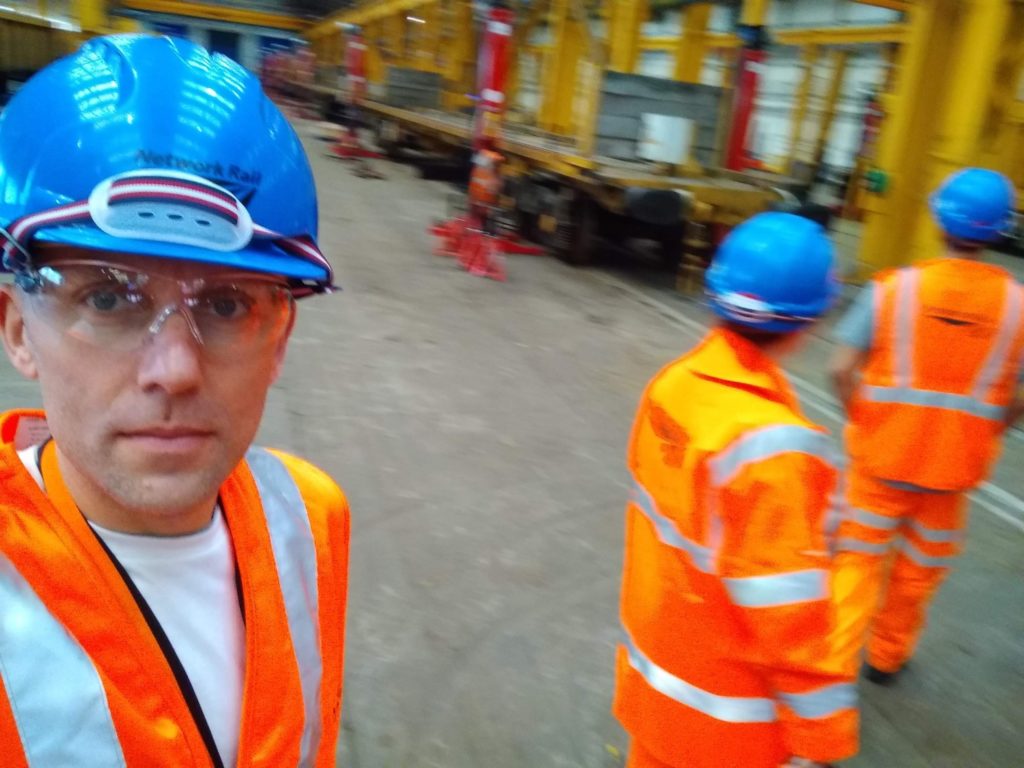
The big trend now is around rail modernisation. The landscape has changed significantly, especially since Covid, and we really need to articulate the pull factors to a career in Rail. We really need to understand the question that candidates ask. Typically, it’s always been “who are you?” and “why should I join you?” I think the question should be “why should I join you now?”
We need to explain what modernisation means, better communicate the roles and prospects in the industry, let candidates know the great opportunities in Rail, and that if they join now, they’ll be joining at a v time of modernisations. So, in 5-10 years they’ll be able to look back and see that they really helped to shape the modern railway.
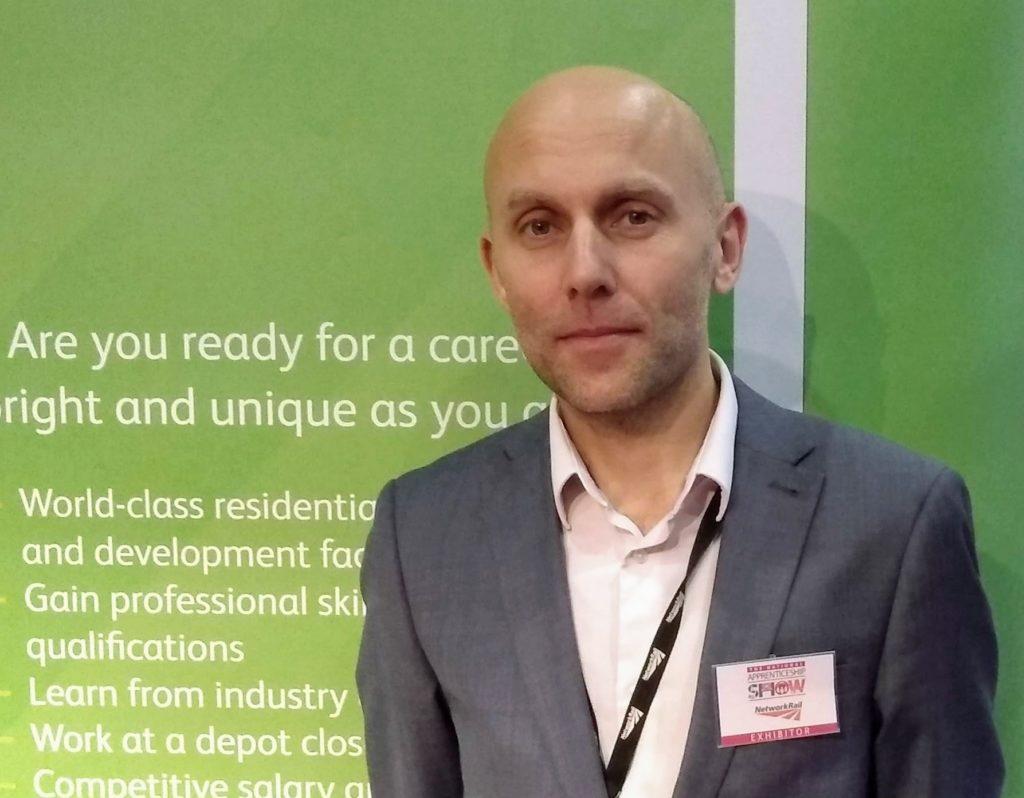
Another trend is around market conditions and candidate behaviour. According to ONS, in December 2021 there were 29.5 million payrolled employees in the UK, that’s up 409,000 on pre-covid levels. The number of UK job vacancies is at a record 1.14 million. So, it’s not just Rail that is seeing a difficult market, it’s difficult for everyone. But that takes us back to the idea that we need to better articulate the opportunities in Rail and emphasise why candidates should join us now.
There’s a lot of talk about the ‘staffing crisis’ in Rail. Do you agree with this? What vacancies are you finding most challenging to fill and how is Network Rail addressing this?
I wouldn’t say there’s a staffing crisis, certainly not from what I’ve seen. But I suppose it’s all down to different perceptions. You will always get certain roles which are more difficult to recruit for. Tech, for example, is hugely, hugely competitive. Again, it’s about how you make an attractive proposition for someone who knows their worth. They know their skill set is in high demand so how do you create that pull?
Modernisation of the network does provide an opportunity to do that, but its down to us to articulate that. As for internal people, our colleagues, it’s about getting an answer to the question “why should I stay and be part of this?”
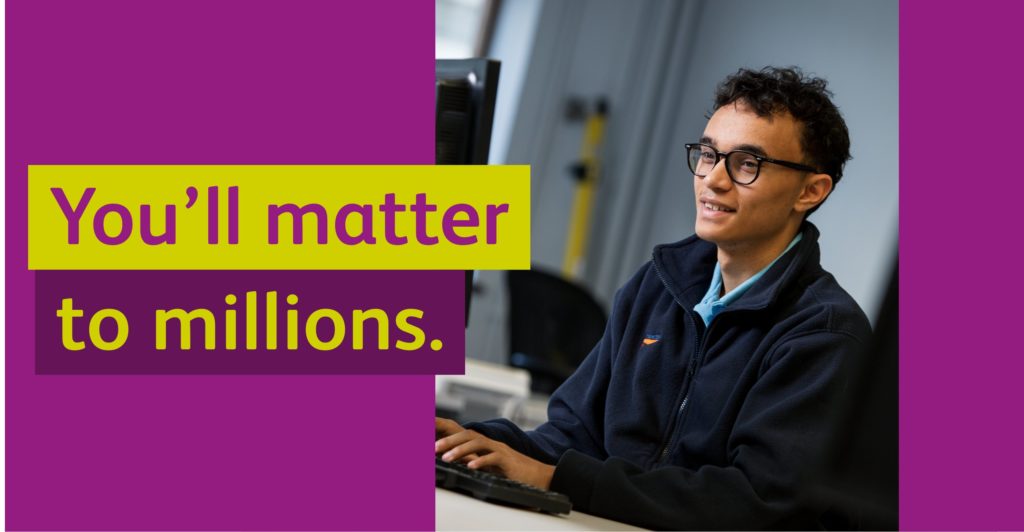
Has the Covid situation impacted recruitment at Network Rail? How has the pandemic affected your recruitment strategy and process, and are you starting to see improvement in this respect?
Rail, very fortunately, was one of the few industries that kept running throughout the pandemic. So many industries shut down overnight, with dreadful effects for people up and down the country. But we saw that Rail really came into its own.
Although most people weren’t commuting because they were forced to work from home, Rail was hugely important in moving freight and key workers across the UK. We had frontline staff at our stations, signallers, and engineers out on track, all delivering an essential railway service while most of the country was shut down.
Off the back of that we launched our ‘We Matter to Millions’ brand campaign, which aimed to convey that deep sense of purpose of how much Rail does for Britain. That really struck a chord with people, both internally and externally. Previously, we had quite a fragmented approach to our market. We were running different campaigns with different messages. But this new campaign spreads the message that by joining Rail, you’re doing work that really matters to people. It’s about showing people there’s a sense of purpose in the work they’re doing.
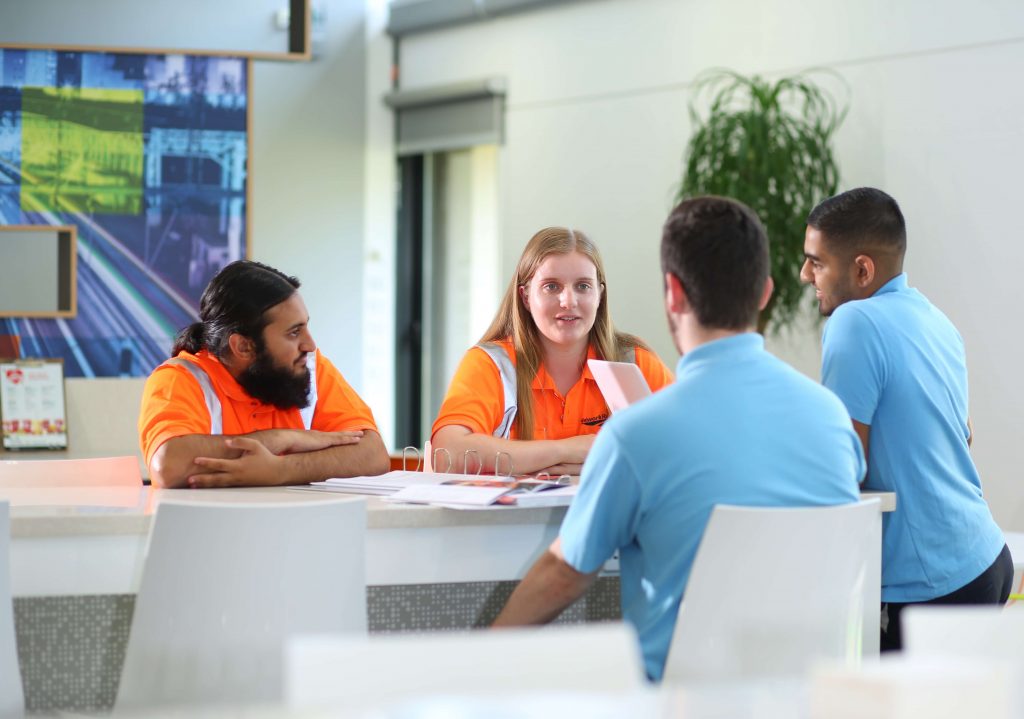
In terms of the more immediate concerns, we went from being an office-based organisation to one that is agile and working from home. That initially made some things quite tricky, such as interviews, assessment and selection, and onboarding. The difficulty was how, at all of those touch points, to give candidates a sense of belonging to something. But I think we’ve managed that, and we’ve seen this new hybrid model of recruitment has bought a lot of benefits.
Prior to Covid, Britain’s withdrawal from the EU was taking up all the column inches. Do you believe that Brexit has exacerbated the skills shortage? What steps are Rail recruiters taking to mitigate the impact?
There has definitely been an influence, but it’s hard to know what the full impact of Brexit is or will be. Either way, I don’t think it changes our approach. We’ve got to articulate that a career in Rail is a great proposition for candidates. Whenever the market gets tough, you just have to rise to the challenge. We still need people in Rail and we’ve got to help candidates visualise themselves in the industry. Whether the challenge is Covid or Brexit, you’ve got to step up to it. There will be similar hurdles in future, you just need to adjust the sails.
Moving on to another headline issue, decarbonisation and the drive to net zero is becoming a greater priority for Rail. Do you see the industry using the green agenda to attract a new generation of recruits?
Personally, I think this is a great a pull factor for candidates. A deeper sense of purpose is important when you’re looking to attract people or retain them. Many candidates want to be working in jobs where they’re doing something to help society. Today’s apprentices and graduates are very vocal about wanting to know our stance on sustainability and the environment.
Rail has a real opportunity to be a leader on the green agenda. How it articulates its commitment to the issue will make a difference on how we attract people to the industry, especially on the early careers side. We’re doing lots to push the green message, from storytelling about how one on freight train can remove X number of lorries from the roads, to our ‘We Matter to Millions’ campaign. One of our pillars of that campaign is the idea that we can master our future, and we’re using individual’s stories to articulate this. I think every industry can be doing more though.
The common view of Rail recruitment is that it’s about working to address the issue of an ageing workforce. Is that correct, and what approaches are recruiters taking to fill the skills gap?
There is a perception that the industry has an aging workforce, but I don’t think it’s necessarily limited to Rail. The first step is in understanding what that means for recruitment and retention is to break down the data and identify areas where that might be a higher risk for us. Then we can look at the potential scenarios and build on that accordingly.
A priority is our internal mobility. We’ve got some programmes at the moment which look at the opportunities available for current employees in other departments or areas. If, for instance, you’re working in maintenance, there may be roles in operations that would appeal to you, but which you might not have even heard about. All we’re doing here is helping someone understand what a role involves and asking whether they could see themselves in that role. Once you’ve done that you can also you can then look at things like upskilling programmes, leadership programmes. We’ve found that by sharing our external recruitment content that with our internal teams, also helps with internal mobility.
On the flip side, you’ve got external attraction, so we’re talking about apprenticeships, graduate year-in-industry placements, and so on. Those sorts of placements offer a structured entry point into the industry. If you’re a graduate or apprentice and you’ve got Network Rail on your CV, that’s not a bad start at all.
What we’ve also found works well is connecting candidates to colleagues already doing the job. It’s all very well for me to go out there and say, “this is a great place to work, here’s what you can do,” but candidates want to talk to someone in the role. We’re trying to do more to facilitate those conversations.
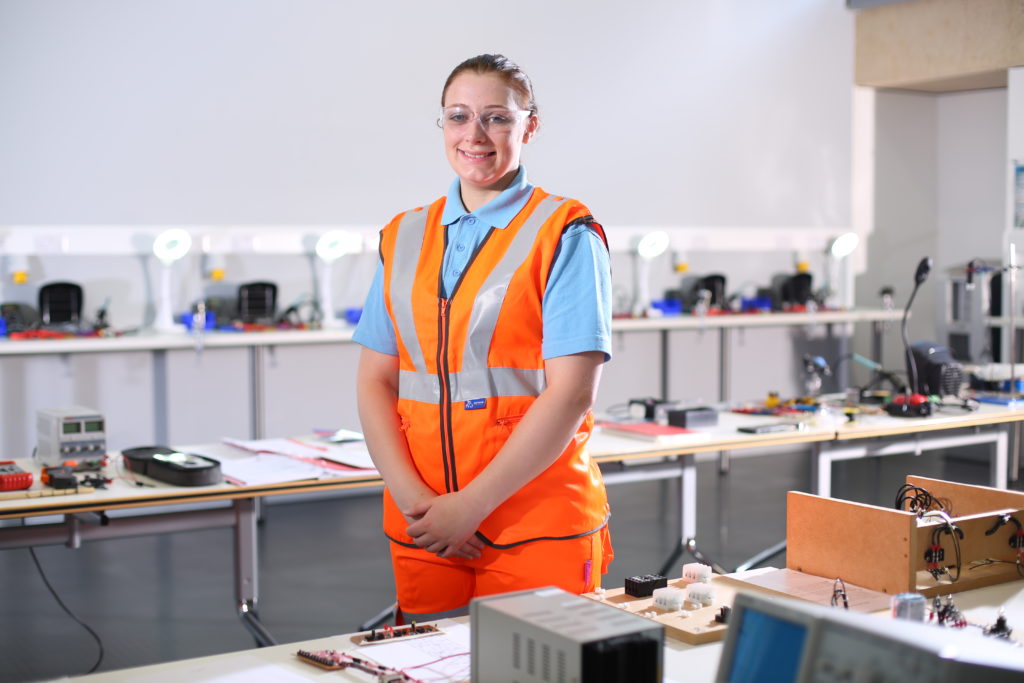
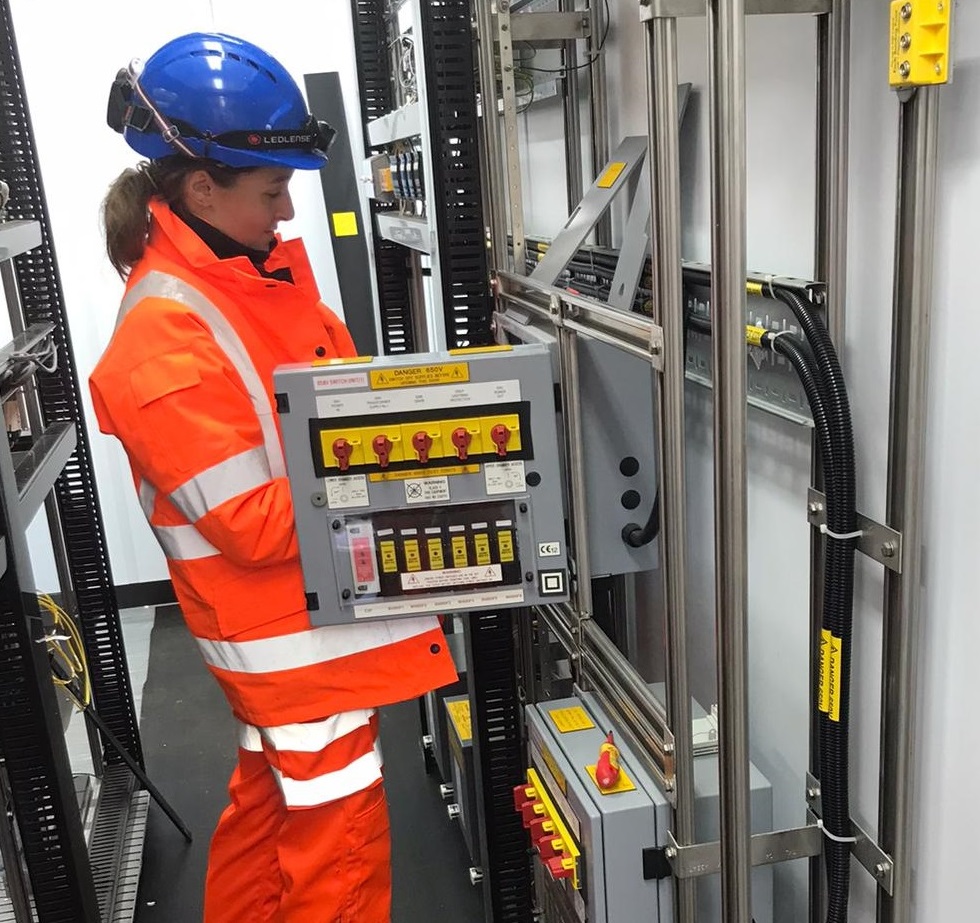
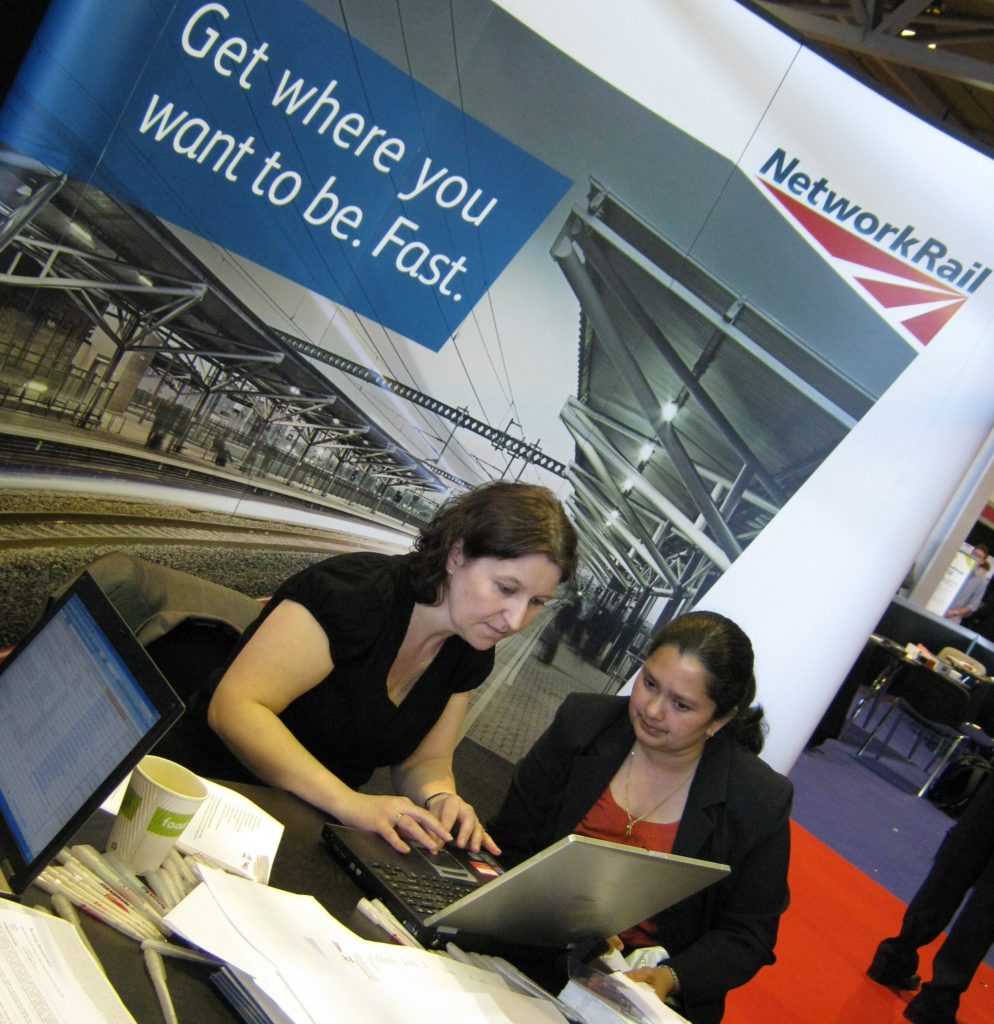
Equality, diversity, and inclusion (EDI) is a well-established and growing concern for all industries today. How does Network Rail and the wider industry approach these issues with regards to recruitment, and what more can be done to attract minority or marginalised candidates?
EDI is hugely important for us and I’ve seen progress, certainly since I started in in the business. I remember visiting a Crossrail site in London, and in two hours I only saw one female engineer. This was good few years ago, but I was really shocked. Loraine Martins, Network Rail’s Director of Diversity and Inclusion absolutely lives and breathes the role and creates such a passion for diversity. She has definitely got EDI onto the board’s agenda, and I feel it’s really filtered down and we’re seeing positive changes.
One example of our focus on EDI is our ‘Everyone Matters’ strategy. This strategic programme is about us becoming an organisation that reflects the communities we serve, and our responsibilities there. Another programme, one we launched last year, is ‘Inclusive Recruitment’. Part of that was around training and education to remove bias, but also providing our people with the tools necessary to be objective and create greater diversity through their recruitment decisions.
An example is a recruitment campaign that we ran for Signallers, which aimed to increase diversity in this role. At the time, only 10% of signallers were female and only 1% were of Black, Asian and minority ethnicity. By the end of this campaign, we managed to increase female diversity in new recruits to 22% and we took Black, Asian and minority ethnicity offers to 7%. We did this just by making the process much more visible, much more authentic, and by putting in-role colleagues in touch with candidates and vice versa.
It’s not just about diversity and inclusivity though. It’s also about social mobility. How do you help people climb the social ladder? I don’t think there’s a quick fix for any of it, but we’re learning and improving.
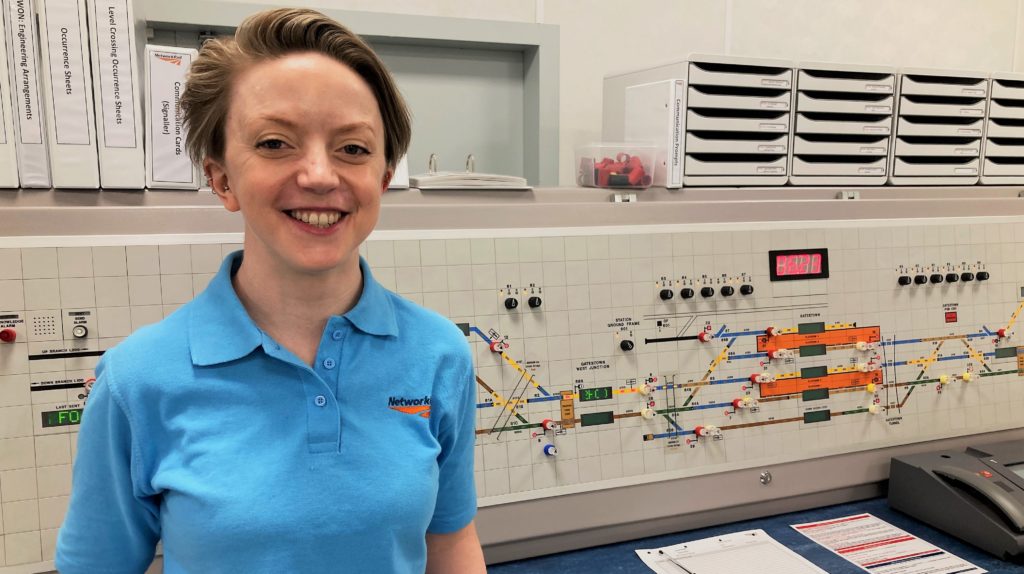
Do you expect the formation of Great British Railways (GBR) to affect recruitment, both for your own organisation and the industry as a whole?
Overall, I think the answer is yes, absolutely. Passengers and freight users will welcome modernisation, and it’ll be to their benefit. Network Rail’s Chief Executive, Andrew Haines, is vocal that as an industry we are currently outdated. We’ve got outdated working practices, a large government subsidy, and we’re not necessarily serving passengers, taxpayers, or our colleagues in the way we could be. The whole point of modernisation is to correct this. The railway is vital to Britain, but we need to do things differently.
Coming back to recruitment, as I’ve mentioned it’s down to changing the narrative from “why should I join you?” to “why should I join you now?”. Some people are going to be excited about the prospect of shaping an industry, and modernisation is really going to call out to them. For others it’s about answering the questions around job security and how GBR will affect them. Most incoming candidates won’t necessarily know what GBR is. Currently, it must be quite confusing. We’ve got this existing organisation in Network Rail, but a shiny new organisation on the horizon. We need to define what that new proposition is for candidates.
On the retention side, we have employees wondering what the impact on Network Rail and other rail companies will be in the short-to-mid and mid-to-long-term future? We need to be very transparent about what this change means right now and what it will mean going forward. The moment you leave gaps in the narrative, people begin to fill the gaps themselves.
And finally, although It’s a tricky time to be making predictions, what recruitment trends do you expect to see in the next 12-18 months?
One thing I’ve learned with Brexit and Covid is that predictions are often quite far off the mark. That said, there’s currently a huge shift towards more agile working and I think that is going to be really key for employers going forward. People want the flexibility of being able to work at home or in the office. They may not like to do either full time, but they want the choice. I think any employer who’s too rigid in that respect will risk losing, rather than attracting, staff.
Sustainability is going to become more and more important. Candidates are already asking where we stand on the environment and what we’re doing to address the issue. And it’s not necessarily just about communicating this, it’s about putting your money where your mouth is and demonstrating what you’re delivering. I expect recruitment strategies will continue to move into the digital sphere. That’s the way we’re moving, partly as a result of Covid, and it’s showing benefits. But it also means you have to up your game. People are creating more and more of their own content these days, and it’s much more authentic – the public can see through the polish of corporate communications. We’re getting more into the community aspect now, starting to engage more with people and start conversations. That approach definitely works in the Rail industry, which is like a big family. We want to invite more people into that family and make them feel part of it.

